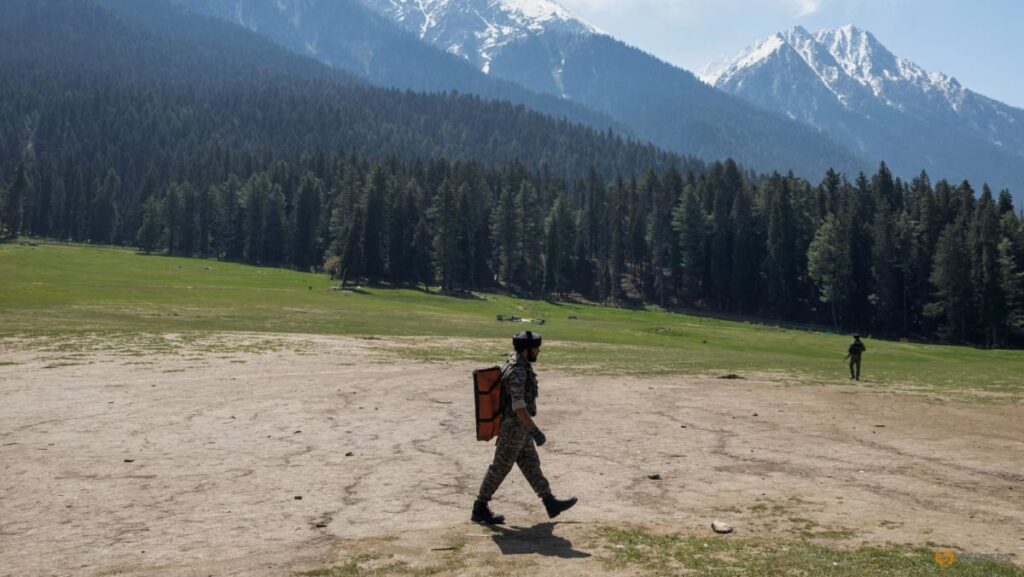PAKISTAN’S REACTION
Pakistan responded with reciprocal actions, such as expelling diplomats from New Delhi and revoking visas for Indian citizens, except for those traveling as Sikh pilgrims.
The country also declared its airspace closed to Indian airlines.
Furthermore, Islamabad issued a warning that it would consider any Indian effort to halt water flow from the Indus River’s main sources an “act of war”.
IMPACT ON KASHMIR
The assault aimed at tourists marked a significant departure from the typical smaller-scale attacks on Indian security personnel.
Tourism plays a crucial role in the region’s economic landscape, and experts believe this shocking focus on tourists will severely harm the industry.
Hotels reported a wave of cancellations just as the normally bustling summer season was beginning.
In response, Indian security forces have initiated a large-scale manhunt, resulting in numerous detentions.
Human rights organizations claim that past crackdowns have led to widespread arrests and violations of civil liberties.
WHAT’S NEXT?
There are concerns that New Delhi’s diplomatic actions might be just the beginning, raising the possibility of military confrontation.
The deadliest attack in recent times in Indian-administered Kashmir occurred in Pulwama in 2019, when attackers drove an explosive-laden vehicle into a police convoy, leading to 40 fatalities and 35 injuries.
In retaliation, Indian fighter jets conducted airstrikes over Pakistani territory 12 days later.


